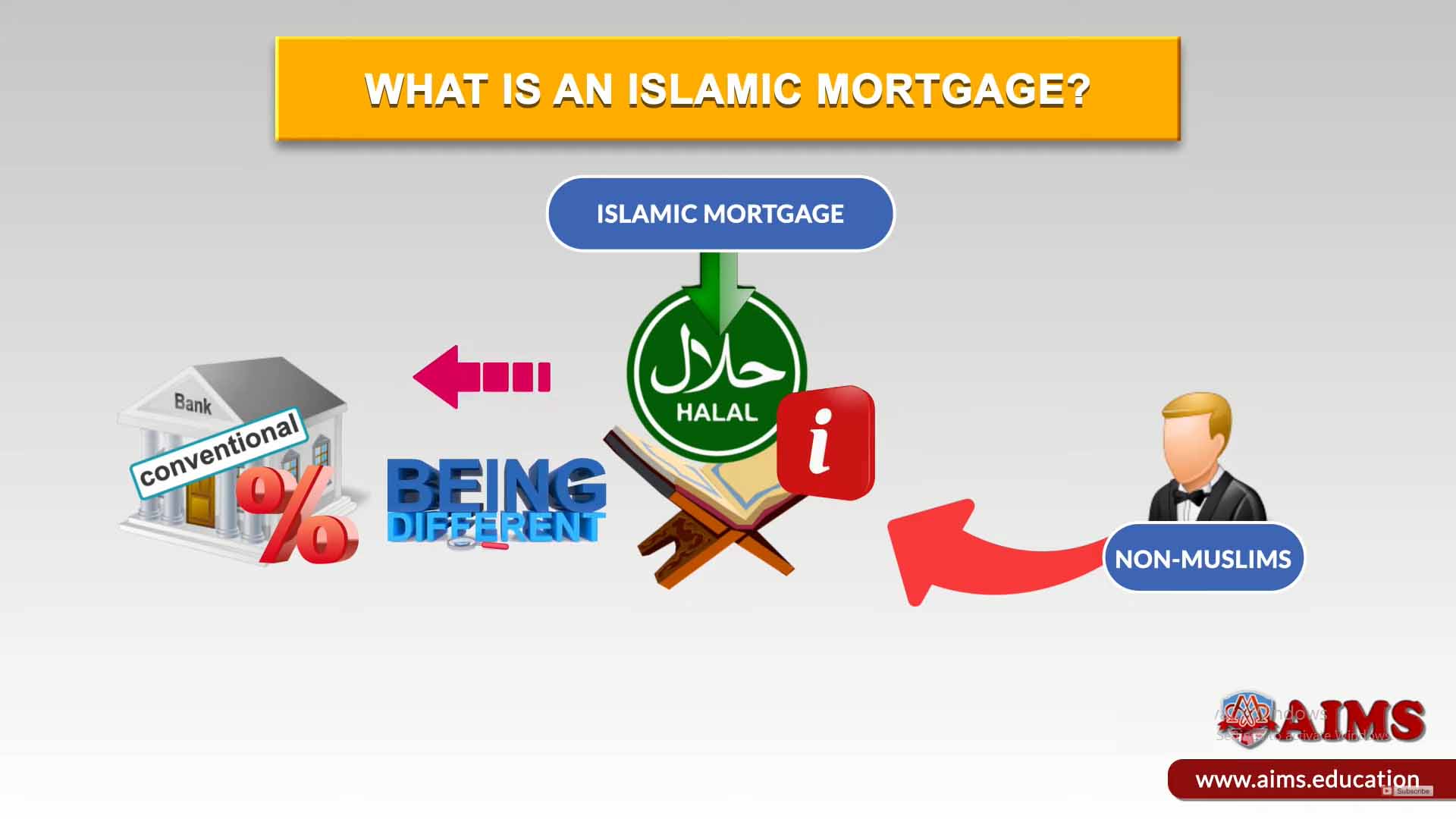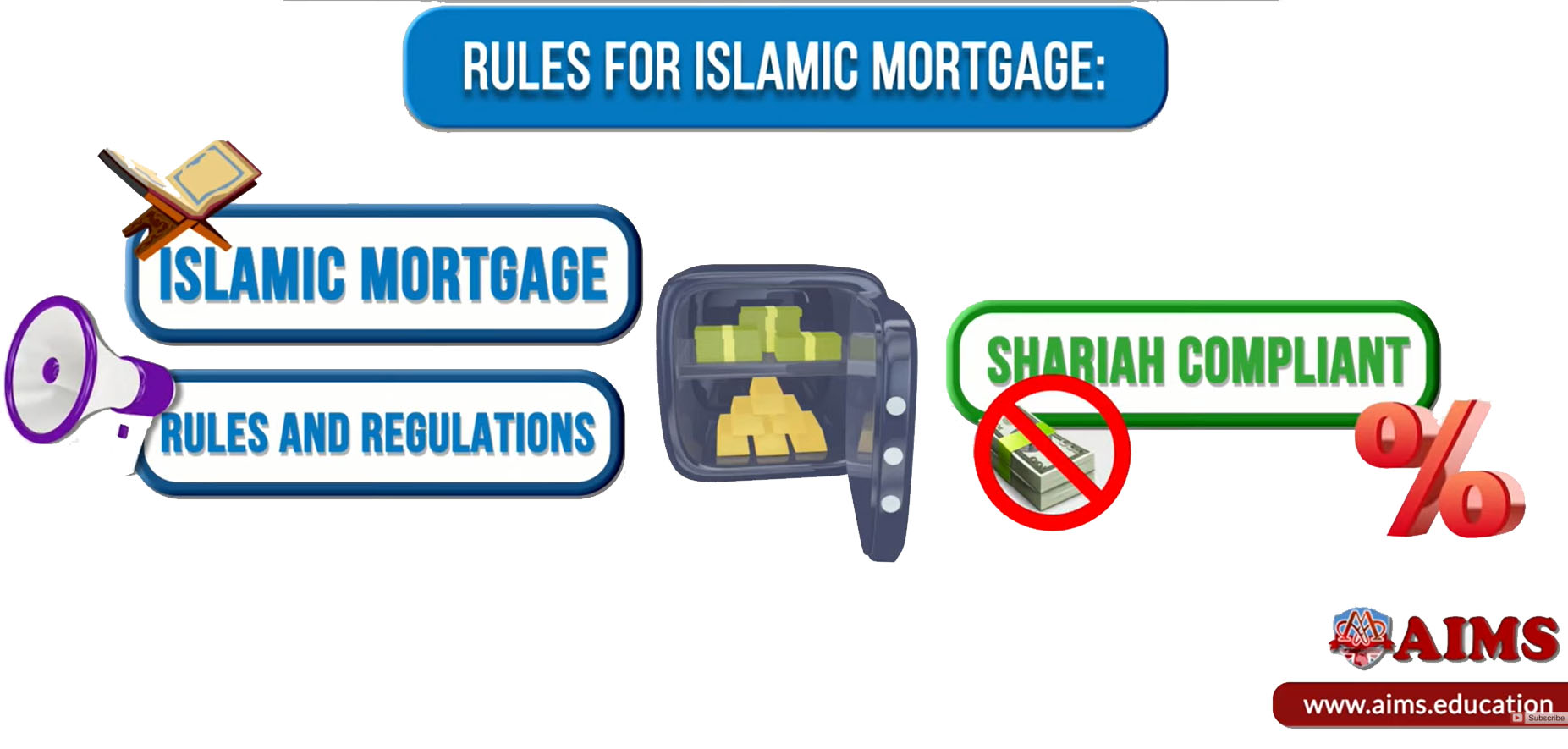What is a Halal Mortgage?
Not in terms of only religious manner, the halal mortgage is better than a conventional mortgage because there is no interest in an Islamic mortgage. That is why even Non-Muslims are interested in this type of mortgage. However, it is not the only thing that makes it Shariah Compliant because Islamic financial institutions work on many models, such as Profit Sharing, Cost plus profit model, and Islamic leasing. Before you can apply for a Muslim mortgage, here we have a little insight that will help you understand what it actually is and how it is different from conventional loans. Shariah mortgage might be an intrigue free credit, however frequently it is a more unpredictable exchange. For instance, an Islamic bank purchases a house for profits and, after that, re-sells it to the “borrower” for profits through amortized installments.
How Does Halal Mortgage Work?
Islamic mortgage is a home loan based on the principles of Sharia, which precludes the instalment or receipt of intrigue. A bank purchase a house or plot, an re-sale it to the “borrower” for financial benefits, through one of the Islamic financial instruments. Different composes include the Islamic bank turning into a cooperate with the “borrower” so both co-possess the house or business, a situation in which the borrower bit by bit purchases proprietorship with a progression of instalments. However, there are different Islamic banking and finance products that can be used for Islamic mortgages. Some of these are listed below:
1. Murabahah for Islamic Mortgage
Murabahah is an Islamic finance mode used for halal mortgage, and it works based on cost plus profit. Using the model the price of the product, such as the house to be sold, and also the profit being taken by the Islamic financial institution is known to the two parties. The buy and banks’ profit must be unmistakably disclosed to the customer at the time of the deal assertion. The installation of the Murabaha cost might be in a spot or in portions during an agreed timeframe.
The Islamic financial instruments are discussed in more detail in AIMS’ MBA Islamic finance degree, online Islamic banking diploma, and online Islamic banking courses. These programs also lead to PhD Islamic Banking and finance program for advance learners.
2. Ijarah for Islamic Mortgage
If you are planning to get a Muslim mortgage, Ijarah is an Islamic leasing model, which is more reliable option. Here are the key steps to be followed for halal mortgage through Ijarah.
Step-1: Find a house to buy and get a real cost with the lender.
Step 2: Likewise, in any home loan, the buyer agrees to the amount of the loan with the Islamic bank. The Islamic bank will then buy the property for resell to the customer.
Step-3: Customer, at that point goes into two concurrences with the Islamic bank:
- The customer will pay an agreed-upon lease monthly to the Islamic Financial Institution.
- Pay back the total agreed price in terms of rent on regularly scheduled payments, usually no more than 25 years.
Step-4: At the point when the price has been completely reimbursed to the Islamic bank, the title of the property is completely transferred from the Islamic bank to the customer.
2. Diminishing Musharakah-Based Halal Mortgage (Diminishing Partnership)
Diminising Musharakah is type of Islamic partnership where the bank and the buyer jointly purchase the property. Unlike the Musharaka model, however, the aim here is to gradually reduce the bank’s share in the property. Hence, the term ‘diminishing.’
- The buyer rents the Islamic bank’s share of the property and buys the shares gradually over time.
- This allows the buyer to eventually become the sole owner of the property while complying with the principles of Islamic finance.

Checklist Before You Apply for a Home Loan
To ensure your Islamic mortgage is truly Halal and Shariah-compliant, you need to verify several key points:
1. Shariah Advisory Board
The lender should have a reputable Shariah Supervisory Board comprising Islamic scholars.
2. Clear Contract
The contract for the halal mortgage should be clear, stipulating that money lending with interest (Riba) is not involved. Make sure that the agreement does not contain any hidden terms or conditions that could contradict Islamic principles. Ideally, according to the Shariah principles, the debtor should write the contract.
Also, Allah says in the Quran, Surah Baqarah, Ayah 282: “O you who have believed, when you contract a debt for a specified term, write it down. And let a scribe write [it] between you in justice. Let no scribe refuse to write as Allāh has taught him”.
3. Risks, Profit and Loss Sharing
Check whether the contract includes a profit and loss sharing arrangement. In a truly Islamic loan, the risk must be shared between the lender and the borrower. One may easily understand the key Shariah rules for risk management.
4. Asset Backed Financing
The halal mortgage or any Islamic financing should be asset-based, meaning that a physical asset, such as a house or car, should be a part of the transaction. In Islam, money cannot generate more money – it must come from a tangible asset.
5. No Penalties for Late Payment
Islam prohibits taking advantage of someone’s hardship. Therefore, a halal mortgage should not impose any penalties for late payment.
6. Recognition from the Regulatory Body
Ensure the local or international regulatory bodies recognize the lender.

Is Islamic Mortgage Really Halal?
Muslim mortgage has some similarities with the Conventional banking system. However, their rules are based on the principles and sources of Islamic law for Islamic Banking and Finance. The interest payment is prohibited, according to a Hadith: “All types of increase are riba and henceforth restricted.” Islamic guidelines on exchanges have been made to anticipate the utilization of intrigue. For example, with a Conventional home loan for asset, the borrower would pay a charge premium on borrowed money.
A Sharia mortgage usually has a few conditions to get the property:
- A Murabaha plan is where the bank will purchase the property you need and quickly offer it for resale. The name can mean ‘benefit’ inexactly.
- In Ijarah, you pay installment month-to-month payments at a higher cost without paying any enthusiasm back to the Islamic bank. For example, if the bank purchases a property worth $300,000, it might resale it to you for $350,000, and you should pay the whole in an agreed period in the form of rent.
- In a Wakala (Agency agreement), you agree with the bank that they will fill in for you as your specialist. By doing this, the bank can use its cash to put resources into Sharia-compliant exchange exercises to create an objective benefit.

Islamic Mortgage vs Conventional Mortgage
There are huge differences between Islamic banking and conventional banking.
- Under a Shariah mortgage, the premium isn’t paid and is supplanted by a rental installment (incase of Ijarah) to the bank until the back is reimbursed.
- There are no confinements for non-Muslims to utilize Islamic banks as well.
- Due to the additional regularity requirements, the expenses and terms are fundamentally the same for keeping pace with Conventional system.
Avoiding Conventional Penalty Practices in Islamic Mortgage
In a halal mortgage, the home purchaser does not pay riba or interest to the Islamic financial institution as he or she does when financing with a conventional home loan. In this manner, in case of a default, a Shariah-complaint mortgage protects the purchaser from paying intensified interest that results in a cost more noteworthy than the first deal cost of the house.
- Islamic financial institutions keep the whole home financing process Shariah-compliant and, along these lines, won’t compound late installment charges like conventional home loan institutions.
- Rather, they charge a settled expense that covers the late installment charge cost and does not fill it in as a method of benefit (usually, the amount is given for charity).
- Conventional mortgage companies regularly charge a pre-installment penalty to purchasers who need to pay in front of the concurred courses of events, while Islamic mortgage providers cannot do this.
Final Words
- Islamic banks differ from conventional banks in several ways.
- When applying for a business loan, Islamic banks provide resources for starting your business, not just money.
- Islamic banking operations are Shariah compliant, so make sure that all the Shariah rules are being followed.
- There should not be a huge difference in final prices of the asset, when comparing the Islamic Mortgage to a Conventional mortgage.
- Compliance is ensured when operations are supervised by a recognized Shariah board or scholar.
Frequently Asked Questions
Q1: What is a halal (Islamic) mortgage?
A halal mortgage avoids riba by using asset-based contracts such as Murabahah, Ijarah, or Diminishing Musharakah, aligning payments with a real asset and shared risk rather than interest.
Q2: How does Murabahah work in Islamic home finance?
The bank buys the property and resells it to you at a disclosed cost-plus profit price, repaid in instalments with no compounding interest.
Q3: How does Ijarah (lease-to-own) differ from a conventional mortgage?
Under Ijarah, you pay rent while gradually acquiring ownership; payments are rental, not interest, and the asset remains central throughout.
Q4: What is Diminishing Musharakah?
A declining partnership where you and the bank co-own the property; you buy out the bank’s share over time while paying rent on its remaining share.
Q5: How is an Islamic mortgage different from a conventional mortgage?
Conventional loans charge interest on cash; Islamic mortgages use sales, leases, or partnerships tied to an asset, with transparent pricing and risk sharing.
Q6: What should I check before applying for a halal mortgage?
Look for a reputable Shariah board, clear written contracts, asset-backed structure, fair risk-sharing, regulatory recognition, and humane late-fee policies.
Q7: Are late payment penalties allowed?
Punitive or interest-based penalties are not Shariah-compliant. Any fee should cover admin cost only and often goes to charity.
Q8: Can non-Muslims use Islamic mortgage products?
Yes. These products are available to anyone who prefers ethical, asset-linked financing subject to local regulations.
Q9: What documentation ensures Shariah compliance?
Contracts must clearly state the structure, asset details, pricing and responsibilities, and be reviewed by a Shariah board—aligning with the guidance to document debts.
Q10: Does an Islamic mortgage involve profit and loss sharing?
Yes, particularly in partnership models like Diminishing Musharakah; Murabahah fixes profit upfront without interest, with the asset anchoring the deal.
